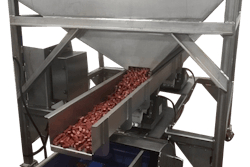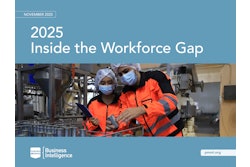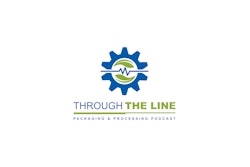Quick hits:
- Krysta Harden, president and CEO of the U.S. Dairy Export Council, says the industry had better learn from infrastructure lessons learned from the COVID-19 pandemic.
- Export markets are looking very good for U.S. dairy producers—if they can get their product into the hands of customers.
- ProFood World editors are back on the road. After Cheese Expo, Aaron Hand went on to BevTech in Frisco, Texas. Follow him on Twitter: @AaronHand.
- NBFDS applies to foods subject to the FD&C Act, including chewing gum and dietary supplements, as well as non-retail foods
- If a food’s primary ingredient contains genetic material modified through rDNA techniques, and cannot be conventionally bred or found in nature, it requires a BE disclosure.
- Regulated entities can use the following regulated disclosure options: text, symbol, electronic or digital link, and/or text message
- Feature Story — Sustainability, Supply Chain, Export Markets Key Topics Among Dairy Producers at Cheese Expo
- Podcast — unPACKed with PMMI: Next Stop PACK EXPO International 2022
 | Read the transcript below: |
Aaron Hand: Hi, I’m Aaron Hand, editor-in-chief of ProFood World. And this is Take Five with ProFood World.
After close to two years of attending mostly virtual conferences, we are back on the road! This week, I’m in Frisco, Texas, for ISBT’s annual BevTech meeting, so I hope you’ll forgive the less-than-stellar filming conditions. But today I actually want to talk to you about the Cheese Expo, which I attended in Milwaukee a few weeks ago.
Lots of interesting discussions on the show floor—along with some very tasty cheeses. And what other show offers you bottles of milk as a break-time beverage? I also really enjoyed watching the students competing in the Collegiate Dairy Products Evaluation Contest, studying and evaluating cheeses, milks, yogurts and what-not.
But what I most want to talk about today are the keynote discussions that took place at the Cheese Expo around America’s role in the global dairy industry.
Krysta Harden, who’s the president and CEO of the U.S. Dairy Export Council, led a panel discussion in the morning that got into the competitive position of the U.S. as a dairy exporter, but also some other topics such as sustainability and supply chain. Supply chain continues to be one of the most egregious pain points for manufacturers and consumers alike.
Talking about the dairy industry’s competitive position, David Ahlem, president and CEO of Hilmar Cheese, commented, “We’ve been selling a lot of stuff, but we can’t get it to consumers right now.” That was the prevailing sentiment. Suppliers – whether the cheese and milk producers themselves or the equipment makers serving those brand owners – are desperately trying to get their products out to the people who need them.
The cheese business is largely domestic, but about half of the dairy proteins get shipped overseas, and almost all of the lactose. The demand is there, but the ports are logjammed, according to David Lenzmeier, CEO for Milk Specialties Global. And Marshall Reece of the Associated Milk Producers said that just getting an empty container to the Midwest these days is not easy.
As Harden put it, “I’m a good sleeper. But the thing that wakes me up is the shipping situation.”
A little later in the day, Harden provided her own perspective on a number of topics, including food insecurity, plant-based dairy alternatives, and the industry’s response to COVID-19. I’m going to let you listen in on what she had to say about lessons learned from the pandemic.
Krysta Harden: It made us aware of our vulnerabilities. It really shined a spotless on one of the areas where we have weaknesses… And the truckers’ retirement age. Folks aren’t coming into trucking. They’re 65 to 68, and they don’t want to get back on the road. We kind of knew that, but we didn’t do anything about it, our infrastructure, and our ports.
I don’t know if we’re better yet, but we’d better learn from these lessons because we’ll be tested again. We’d better make investments in infrastructure and look at ways to mobilize our supply chain differently.
It’s up to us as agriculture—not just dairy, but as an industry—to take advantage of what we’ve learned from COVID.
Aaron Hand: There’s way more than I can fit into this segment, so I encourage you to check the links below for some written content. Up next, Melissa Griffen will provide some insights on labeling for bioengineered foods.
Melissa Griffen: Hi, I’m Melissa Griffen, Contributing Editor at ProFood World. The Final Rule for the National Bioengineered Food Disclosure Standard (NBFDS) issued by the USDA in December of 2018 began requiring mandatory compliance in January of this year. NBFDS is intended to inform consumers, and regulated entities must maintain records and determine which of their foods, if any, have been genetically modified.
AIB International offers a course outlining how to use bioengineered food labels, including a recorded webinar which provides an overview of the finalized requirements for food and ingredients. The main goal of the course is to help the industry understand the labeling rules, exemptions, and the use of voluntary bioengineered food labeling.
NBFDS applies to all foods subject to the Food, Drug and Cosmetic Act, including chewing gum and dietary supplements, as well as to non-retail foods which the Agricultural Marketing Service (AMS) does not have the authority to extend exemptions to. AMS has created a current list of bioengineered foods falling under NBFDS requirements, which will be reviewed and modified as needed on a yearly basis. Non-exempt bioengineered foods not included in this list are also required to provide a disclosure.
The webinar outlines how to determine if a food has been bioengineered according to the Final Rule, as well as which foods are exempt. If the primary ingredient of a food contains genetic material modified through rDNA techniques, and cannot be otherwise conventionally bred or found in nature, then it requires a bioengineered food disclosure.
Regulated entities can use the following regulated disclosure options: text, symbol, electronic or digital link, and/or text message. Additional options such as a phone number or web address are available to small food manufacturers or for small and very small packages. AMS specifies that disclosure information is free to consumers and their personal information cannot be collected, analyzed, or sold.
For more on which foods and entities are exempt from NBFDS as well as voluntary disclosures and record keeping, see the full story at the URL on screen. Thanks and see you next time on Take Five with ProFood World.




















